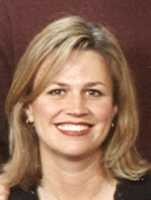Weight Loss Organizations
Losing and maintaining weight is a difficult and intimately
personal struggle, but it’s not one that anyone needs to go
through alone. There are literally millions of people forging
their own paths to their better selves, and together, they offer
support, advice, and inspiration to one another.
The Twelve Steps
Most recovery programs, including many for food and weight-loss
related support, are based on the Twelve Steps. Despite inherent
religious references, Twelve Step groups welcome members of all
faiths, or even none at all. Roughly, these steps are, following
the tradition of Compulsive Eaters Anonymous (described more
below) :
1. We admitted we were powerless over food–that our lives had
become unmanageable. 2. Came to believe that a Power greater
than ourselves could restore us to sanity. 3. Made a decision to
turn our will and our lives over to the care of God as we
understood Him. 4. Made a searching and fearless moral inventory
of ourselves. 5. Admitted to God, to ourselves, and to another
human being the exact nature of our wrongs. 6. Were entirely
ready to have God remove all these defects of character. 7.
Humbly asked Him to remove our shortcomings. 8. Made a list of
all persons we had harmed, and became willing to make amends to
them all. 9. Made direct amends to such people wherever
possible, except when to do so would injure them or others. 10.
Continued to take personal inventory and when we were wrong
promptly admitted it. 11. Sought through prayer and meditation
to improve our conscious contact with God as we understood Him,
praying only for knowledge of His will for us and the power to
carry that out. 12. Having had a spiritual awakening as the
result of these steps, we tried to carry this message to
compulsive eaters, and to practice these principles in all our
affairs.
Compulsive Eaters Anonymous HOW (CEA-HOW)
For those struggling with overeating, CEA-HOW offers support and
guidance to help you to end your battle with food. By adopting
the Twelve Steps, members encourage and remind one another to
focus on their goals and use the tools of the group to gain
strength. Focus not on negative issues, but rather on sharing
recovery feedback and stories and discussing the weighing and
measuring three healthy meals per day with no snacking
in-between, and relies largely on a phone tree for support. They
offer both in-person and online support groups with no dues or
fees around the world. The group is self-supported through
contributions. And their online meetings host chats, scheduled
at various times to meet many needs. Some literature is
available for free download. In all, the program reaches out to
focus on three main areas; spiritual, physical, emotional. More
information can be found at http://www.ceahow.org .
Eating Addictions Anonymous/SANE (EAA/SANE)
Eating Addictions Anonymous helps people dealing with a wide
range of body image disorders, ranging from anorexics to
bulimics to compulsive overeaters and everyone in-between. They
stress that a spiritual, holistic approach is absolutely
necessary to overcoming this disease, and pledge, using their
12-steps, to spend each day refraining from using food as a
drug-type alternative and addressing body image issues. In
addition to the Twelve Steps, the group focuses on the SANE
philosophy or method—Spiritual Surrender, Absolute Commitment,
Necessary Action and Emotional Healing. There are no fees or
dues. For locations near you, contact Eating Addictions
Anonymous, General Service Office, PO Box 8151, Silver Spring ,
MD 20907-8151. USA Telephone: (202) 882-6528. For more
information, visit http://www.eatingaddictionsanonymous.org .
Eating Disorders Anonymous (EDA)
The only requirement for joining Eating Disorders Anonymous is a
desire to end one’s struggle with an eating disorder. Their goal
is balance, not abstinence. This self-supporting agency has no
fees, dues or food plans. They invite people with disorders of
all types and severity come together to find common ground and
reach common goals. The group stresses that one can end an
eating disorder with the right support and the right steps.
Members are empowered to see past food and begin living with the
ability to see and make alternate choices. Find a meeting
location online or email: [email protected] .
For more information, recovery stories downloadable at no-charge
in Microsoft Word format, pdf brochures, and more, visit
http://www.eatingdisordersanonymous.org .
Food Addicts Anonymous (FAA)
Food Addicts Anonymous relies on the Twelve Steps and a food
plan (not a diet) to conquer addictions to food, specifically
sugar, flour and wheat. Fats and high-carbohydrate refined,
processed foods are also on their watch list, eliminating
binging, cravings and shame. Instead, members focus on progress
a single day at a time and are empowered with the understanding
that being addicted to food is like a chemical dependency; as
with any other drug, the only way to fight the addiction is to
stop ingesting the chemical. There are no special foods to buy;
simple, regular grocery store food is used. There are over 150
FAA chapters around the world to join. For more information,
meeting locations and times, chatroom meetings, the Online Loop
(a Yahoo email-based daily communication network) and more,
visit http://www.foodaddictsanonymous.org .
Food Addicts in Recovery Anonymous (FA)
With membership open to anyone of any age experiencing
difficulty with food-related issues, including anorexia, bulimia
and overeating, Food Addicts in Recovery Anonymous offers
stability and support to those in need. It is based upon the
12-Steps. With frequent meetings, no dues, fees or weigh-ins, a
warm and caring community is built where members find the
strength they need to end their harmful addiction to food and
achieve and maintain a healthy weight. For more information,
location and times of meetings in your area, inexpensive
pamphlets for purchase and more, visit
http://www.foodaddicts.org .
National Association to Advance Fat Acceptance (NAAFA)
Working to fight against discrimination against fat people, the
National Association to Advance Fat Acceptance offers
literature, support and guidance to all its members. They
publish a newsletter, write articles, run action campaigns, and
host events and conferences, all with the goal of empowering the
heavyset person to embrace and love themselves as they are.
Within NAAFA are multiple support groups, including separate
meetings for children, men, women, diabetics, and more. Annual
dues are required. For additional information, resources, event
dates, brochures, local chapters, Persons with Disabilities Law
Center and more by clicking on http://www.naafa.org or contact
them at: NAAFA, Inc., PO Box 188620, Sacramento, CA 95818. Call:
(916) 558-6880.
Overeaters Anonymous (OA)
Similar to groups like Alcoholics Anonymous (AA) and Narcotics
Anonymous (NA), Overeaters Anonymous offers group support for
anyone struggling with a variety of weight-related difficulties.
It utilizes the Twelve Steps to empower members to overcome
their problems and begin changing their lives for the better,
with over 1500 chapters internationally.
Participants in OA experience a wide range of problems
associated with food and their weight. An obsession with food,
weight, and/or physical appearance is generally shared by all
members in some form. Some are binge eaters, some are compulsive
exercisers, and some are anorexics. Still others are diet pill
addicts, bulimic, and/or so engulfed in yo-yo dieting that they
are putting their life at risk. There is no membership roster,
no participation requirement, and no associated cost. Small
donations are often sought at meetings to help meet costs,
however. You never have to share your name or any personal
identifying information about yourself. For more information,
visit http://www.overeatersanonymous.org .
Taking Off Pounds Sensibly (TOPS)
Taking Off Pounds Sensibly is a group similar to Overeaters
Anonymous and other Anonymous groups, TOPS has over 10,000
chapters in the United States alone. Through frequent support
groups, private weigh-ins, and positive energy, its members are
encouraged—and encourage one another—to lose weight safely and
sensibly, and keep it off. The group sells a Nutrition and
Fitness software application on a CD that runs on Windows for
around $40. It helps track and analyze foods and exercises for
up to two users. And it boasts a database of 18,000+ food items
from the USDA Database for Standard Reference, 9,000+ Brand Name
foods and information featuring 3,200+ restaurant menu items,
including many from the most popular national chains. It also
has the ability to track up to 88 nutrient factors, including 37
vitamins and minerals. Annual membership dues are required,
around $20 US, $25 Canada, plus 50-cents – $1 per week for
chapter dues. Membership includes receiving a monthly print
40-page magazine filled with inspirational stories, healthy
recipes and news from TOPS chapters around the world mailed to
your postal address. The group sites these statistics on their
website: Current Obesity Statistics: (Source: Centers for
Disease Control) •61% of adults in the U.S. are considered
overweight; 26% are considered obese. •The percentage of
children and adolescents who are overweight has doubled in the
last 30 years. •Each year, 300,000 deaths are attributable to
poor diet and inactivity. •Health care costs related to an
unhealthy weight and sedentary lifestyle are more than $117
billion annually. For more information, success stories, online
ecards to mail others for encouragement, message board, online
members area, chat room and more visit http://www.tops.org .
-
Definition of Obesity
Obesity is a problem that we all know of. There are times when it seem
-
Mind Over Matter: Key Strategies for Weight Loss Success
-
Study Says Sex Doesn’t Burn Calories
If there is ever a myth that people might wish were true, it is
-
An Interesting Look at Mini Gastric Bypass Surgery
-
Weight Loss Without Dieting
-
Daily Weight Loss Motivation
- DON'T MISS
- Weight Loss Surgery Window of Opportunity: Fact or Fiction?
- Home Weight Loss – Naturally
- Walking Routines for the Bariatric or Gastric Bypass Patient
- Cardio – Tap Into Your Fat Stores and Start Burning Some Fat!
- Probably The Best Weight Loss Program Ever
- Hypnosis for Weight Loss: Can Hypnosis Make You Thin?
- Are False Assumptions Keeping You From Your Weight Loss Goals?
- A Guide to Childhood Obesity Epidemic
- Food Supplements To Control Obesity
- Low Carb Diets – What Are They and How Do They Work ?




